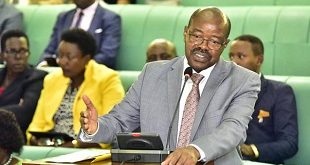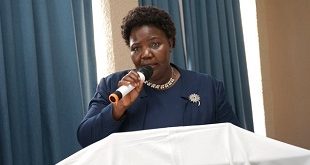
Umeme concession talks limits capital mobilization efforts
Kampala, Uganda | THE INDEPENDENT | At least eight out of 10 Ugandans want the electricity sector to undergo some kind of reform with a hope that this will improve service delivery, according to a mini-survey.
The poll survey featured 161 high net-worth individuals, or the kind of Ugandans who are likely to be high-end users of electricity, as part of the ongoing debate on the proposed rationalization of agencies in the energy sector.
The survey by local think-tank Kigo Thinkers, revealed that the call for reforms is based on the feeling that electricity supply is very unreliable due to constant power cuts, followed by the high cost of using it and access or connection.
The proposed reforms could see a number of government entities re-merged, while some private companies contracted by the government to do the work could lose their contracts.
The current regime was instituted in the early 2000’s in reforms that brought to an end the existence of the Uganda Electricity Board, which used to handle all generation, transmission and distribution, overseen by the Ministry of Energy.
The Electricity Regulatory Authority, ERA was created to regulate the privatized sector.
Twenty years later, public pressure has seen government review the sector performance and this could end in abolishing some agencies, with the Rural Electrification Agency which is already collapsed into the Rural Electrification Program as a department in the ministry.
The Uganda Electricity Generation Company Ltd and the Uganda Electricity Distribution Company Ltd which government formed to handle the sector, instead hired most of the functions to private companies.
Only the Uganda Electricity Transmission Co Ltd (UETCL) has in effect retained its full functions.
Hiring private companies has largely been blamed for the high cost of power and unstable supply, and for this, the public view is dominated by calls not to renew Umeme’s contract at the end of its 20 years in 2025.
Dickens Kamugisha, the Chief Executive Officer of the Africa Institute for Energy Governance-AFIEGO, says he does not see any reason why the concession like several others, should be renewed.
“Value for money should be key in power reforms,” he says. “We shouldn’t just bring in the private sector for the sake of it. Set minimum standards for them to operate,” he says.
He however says there is need for government to do a forensic study of all the companies and agencies in the sector to have their performances over the years scrutinized against their terms of references so as to make a decision on their future.
Calls for a forensic study were supported by Dr Frank Ssebowa, the first Executive Director of ERA, who says the government has already agreed to appoint a transactional advisor who will make such studies.
He is however concerned about information coming out of government that the advisor will be funded by a donor, because this is likely to give the donors room to dictate how the reforms in the sector should be.
Ssebowa warned against the way Umeme’s contract is being handled as it comes to an end, saying the government is keeping the company uncertain about its future and this makes it hard for them to invest or deliver standard services.
The government has put off negotiations for the concession renewal for more than a year now.
Umeme has been asking for resumption and conclusion of the negotiations so as to create confidence in the investors to bring in new money, but this is yet to happen.
Sebowa says that it is better to tell Umeme of the decision not to renew the concession so that there is a smooth transition to another service provider, than keep it in suspense.
He says, even if the contract is to be renewed, the government should leave the companies to operate in peace without threats of termination because this also scares investors away from the sector.
On the tariffs, Ssebowa says there is a lot that can be done to cut the cost of power for the final consumer if the utilities cut down their own costs.
He says he has information that Umeme is willing to have its return on investments, which is set regulated by the regulator, revised downward and this can enable the company set lower tariffs.
Currently, the domestic consumer pays about 740 shillings per kilowatt hour or per unit, which is considered very high.
Ssebowa also wonders why the cost reduction caused by the introduction of Yaka or prepaid metering system has never been reflected in the final tariff, despite the fact that it led to reduction in administration costs and improved revenue collection.
Dickens Kamugisha adds, “You cannot solve power distribution without looking at power generation and transmission.”
Eng Norbert Semitala, formerly Technical Director at UEB and ERA says, “Any reforms that do not specifically tackle the causes of the high tariffs will bear very little success. High tariffs arise from the tendering process where contractors in generation and distribution are handpicked instead of going through an open bidding process.”
Another problem he notes is the negotiating of agreements in dollars, yet the tariffs are collected in shillings.
He hopes that over the years since the first contracts were made with private contractors, the country has learnt how to deal with future processes to get value for money.
*****
URN
 The Independent Uganda: You get the Truth we Pay the Price
The Independent Uganda: You get the Truth we Pay the Price


